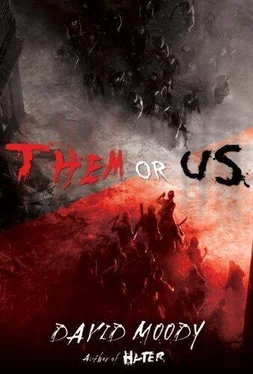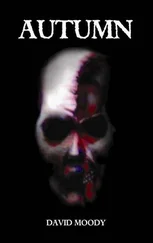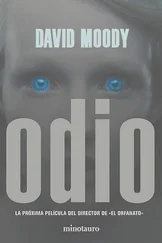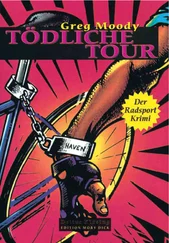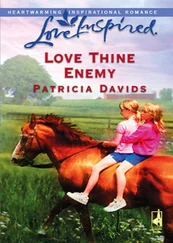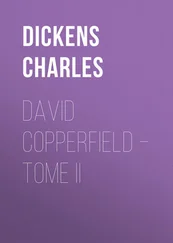Sutton glances across at me and nods enthusiastically, and something about the expression on his face makes alarm bells start to ring again. I’d put his sudden change of mood down to relief that I’d agreed to come with him, but I’m wondering now if I’ve made a huge mistake and he really is the psycho I’d first feared. I start silently plotting my escape. When he next slows the car down I’ll try to get out. I’ll roll away along the ground like they used to in action movies, then I’ll work out where the hell I am and try to get back to Lowestoft. If Sutton dares turn up on my doorstep again, I’ll introduce his face to my wrench, then dump his useless body. No one will miss him.
“Be interesting to see what happens to the environment now, won’t it?” he says.
“Will it?”
“I think so. You’ve got all that pollution and contamination on one hand, and the fact that a huge number of people are dead on the other. Will they cancel each other out? Who knows, McCoyne, maybe genocide will turn out to have been a blessing in disguise!”
He laughs manically, loud enough to drown out the music for a moment, and I want out of here. We pass through Wrentham and turn right at the junction I turned left at for Southwold yesterday. After another mile or so I see something at the side of the road that distracts me temporarily. I’ve been here before. It’s the site of a vicious battle that Llewellyn bragged about once. He said it was like something out of the movies. He was with a group of ex-soldiers that had been cornered by some Unchanged military. They were massively outnumbered, he’d said (although I’m sure he was exaggerating), and yet twenty or so of them had dug in and held off their attackers for hours on end. In frustration the Unchanged commander had requested air cover. Hearing bombers approaching, Llewellyn had ordered his fighters to attack, and then, as the bombs began to fall, they fled. The Unchanged, or so he told me, bore the brunt of their own side’s munitions; then Llewellyn’s people returned to finish them off. I’m sure he embellished the story with more than a liberal sprinkling of bullshit, but there’s no disputing the fact that something huge did happen here. When I first saw this place, the cratered ground was blackened by fire and still covered with the remains of the dead, the tangled blades of a downed helicopter sticking up into the air like the legs of a dead spider. Today it looks almost completely different—overgrown and wild. In a couple of years, no one will know that anything ever happened here. It’ll just look like part of the natural landscape.
“Not far now,” Sutton says suddenly. I curse myself for allowing myself to become distracted, but I don’t respond. Instead I go over the route we’ve followed again so that I can get back to Lowestoft on my own if need be: Take the coast road out of town to Wrentham, then right at the junction and head farther inland. Out of the corner of my eye I notice Sutton is watching me. “You’ve got to believe me, McCoyne,” he says, his voice now serious again, no doubt picking up on my unease, “what I’m going to show you is important.”
“You keep telling me that,” I reply, sliding my left hand down into my inside jacket pocket until the tips of my outstretched fingers rest on the hilt of one of my fighting knives, checking it’s still there, “but you still haven’t given me any details. I’m starting to think this was a bad idea.”
“It’s hard to explain.”
“Try.”
“It’s difficult. I’m not sure how you’ll react or what you’ll think.”
What’s he hiding? Is he behind the stolen supplies? Is it worse than that?
“You’re not making me feel any better about this.”
“I swear, when we’re finished you can just walk away if you want, and you’ll never see me again—but I don’t think you will.”
“What makes you so sure?”
“Because you’re like me,” he says again, starting to sound like a broken record. Sutton takes a sudden hard right turn off the road, driving through an open metal gate and out along a narrow gravel track. The front of the car clatters through a deep water- and ice-filled dip, then rattles over a cattle grid, and I have to concentrate again just to stop myself from throwing up.
“We’re here,” he says, slowing down and steering around the curve of the track toward a motley collection of ramshackle farm buildings. The farmhouse and its outbuildings appear deserted, black smoke damage visible around the edges of some of the windows and doors. We drive through a large yard full of furrows and puddles, most of them filled with ice. Bizarrely, Sutton has to slow down to allow a lone cow to wander across in front of us. It’s as starved and thin as every other animal I’ve seen recently. When it looks around and sees us it panics. Its hooves skid in the slippery mud as it tries to change direction, and it looks like it’s got that “mad cow” disease they used to talk about on the TV news. First cow I’ve seen in months.
“Don’t see many of them here anymore,” Sutton says, watching me watching the animal. “Quite a few survived, but I doubt they’ll last the winter. Brutes drove most of them away.”
“Brutes? I thought the Brutes were all dead.”
“As good as.”
“Why would Brutes be here?”
“Because they knew.”
“Knew what?”
Sutton doesn’t answer. He drives the car into a dark, open-ended barn and stops it deep in the shadows, parking next to a filthy, beaten-up delivery truck with a faded picture of a woman’s face on its side, advertising something you can’t get anymore, which probably wasn’t that important anyway. I look up and stare into the face; still as beautiful and perfect as the women on the covers of the books I read. Sutton switches off the engine, and the sudden silence is unsettling.
“The Brutes knew what we were doing here,” he explains as he opens his door and gets out. “Don’t ask me how, but they did.”
Now I really am starting to get worried.
“So what are we here for? Is this where the trucks are from or—”
“Nothing like that,” he says, leaning back into the car. “This isn’t about John Warner’s supplies. Sorry, Danny, I haven’t been completely honest with you.”
“Fuck it,” I shout at him, refusing to move. “I knew I shouldn’t have come here. Either give me the keys or take me back to Lowestoft.”
“You’ve come this far,” he replies, obviously having no intention of doing either, “might as well see now. This is important, I swear. What I’m going to show you changes everything.”
With that he walks away, moving with suddenly revitalized energy and speed. Shit. What are my options? Kill him? I don’t know if I could. Make a run for it? The hungover state I’m in this morning, I wouldn’t get far. Oh, what the hell … even though I’m sick, I’m armed, and I’m still probably stronger than he is.
Sutton turns back and beckons me to follow him along another track, this one leading away from the farm buildings. The dirt track climbs steeply and snakes away across uneven grassland that’s bleached yellow and brown. He’s not that much faster than me, but I’m happy to let him build up a decent lead, figuring that putting a little distance between us will make the situation easier for me to control and give me more of a chance of getting away if I need to. I’m distracted by a sudden noise and movement way over to my left. I grab one of my knives, ready to defend myself against an attack, then freeze. Jesus, it’s a Brute. My heart starts thumping at the prospect of having to fight. Months ago I’d have relished any conflict, but not today, and definitely not with one of our own. Most of these poor bastards lost all sense and perspective during the war, driven out of their minds by the intensity of their Hate, and killing’s all they know now. It’s all they have left. Now that there are no Unchanged, apart from the occasional emaciated cow, it seems we’ve suddenly become an obvious target.
Читать дальше
